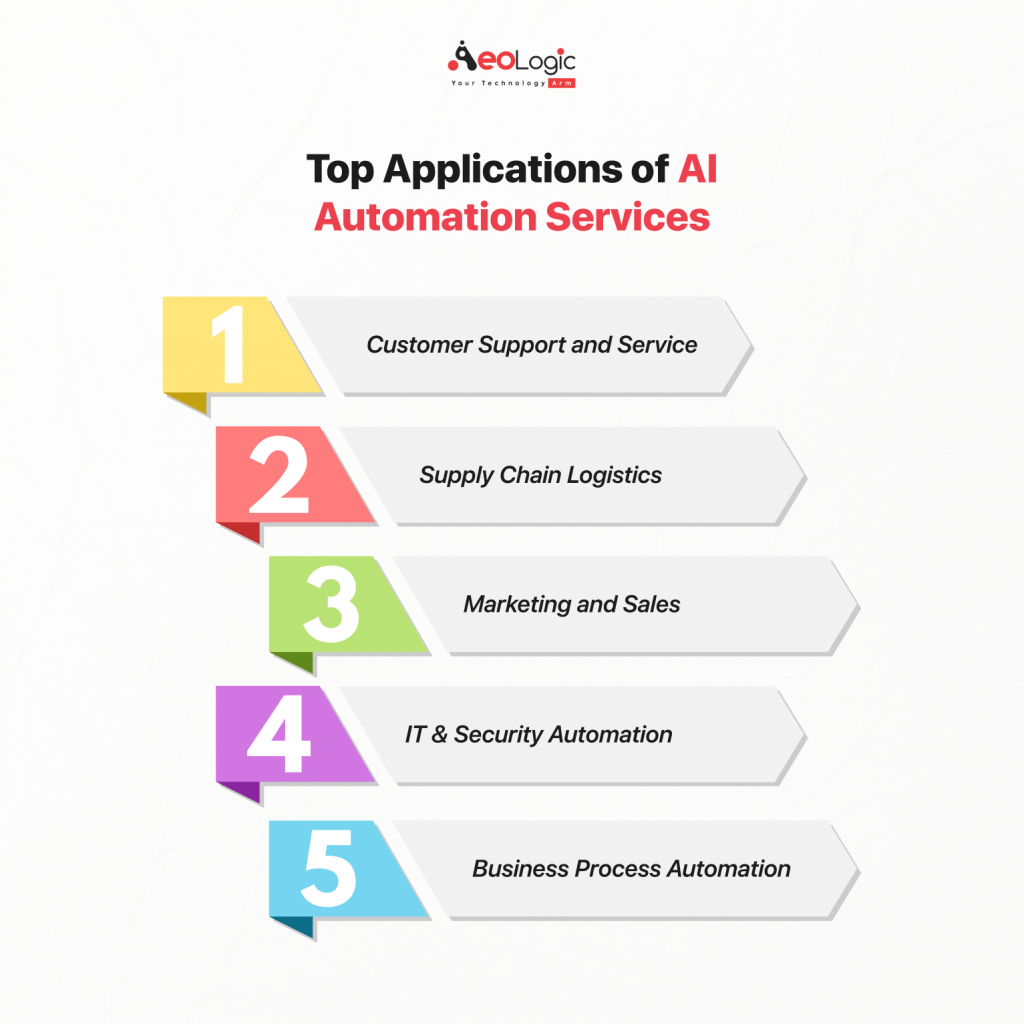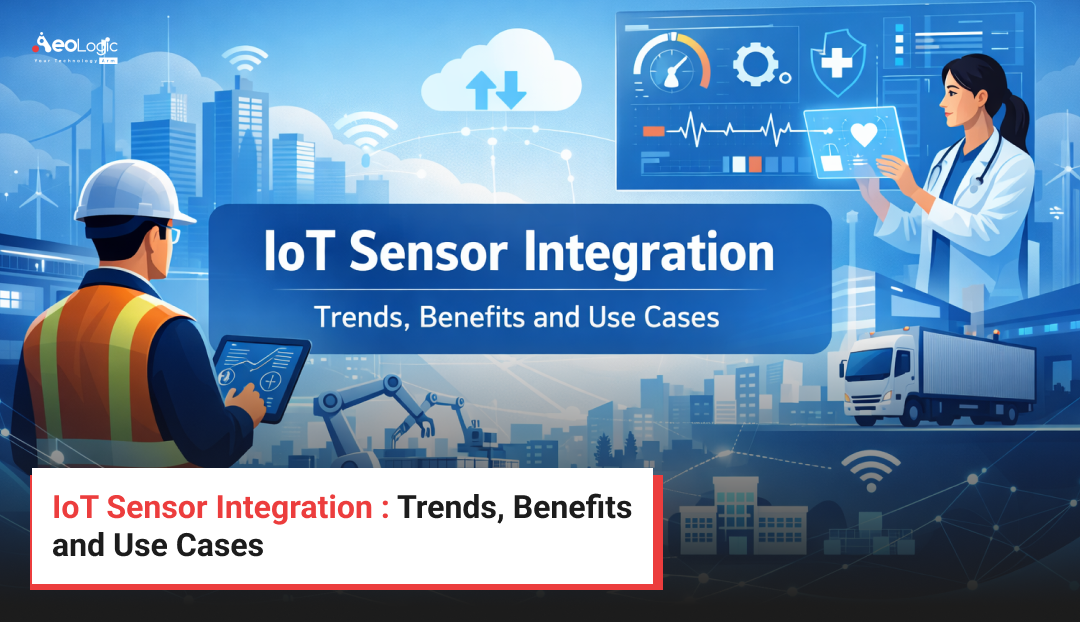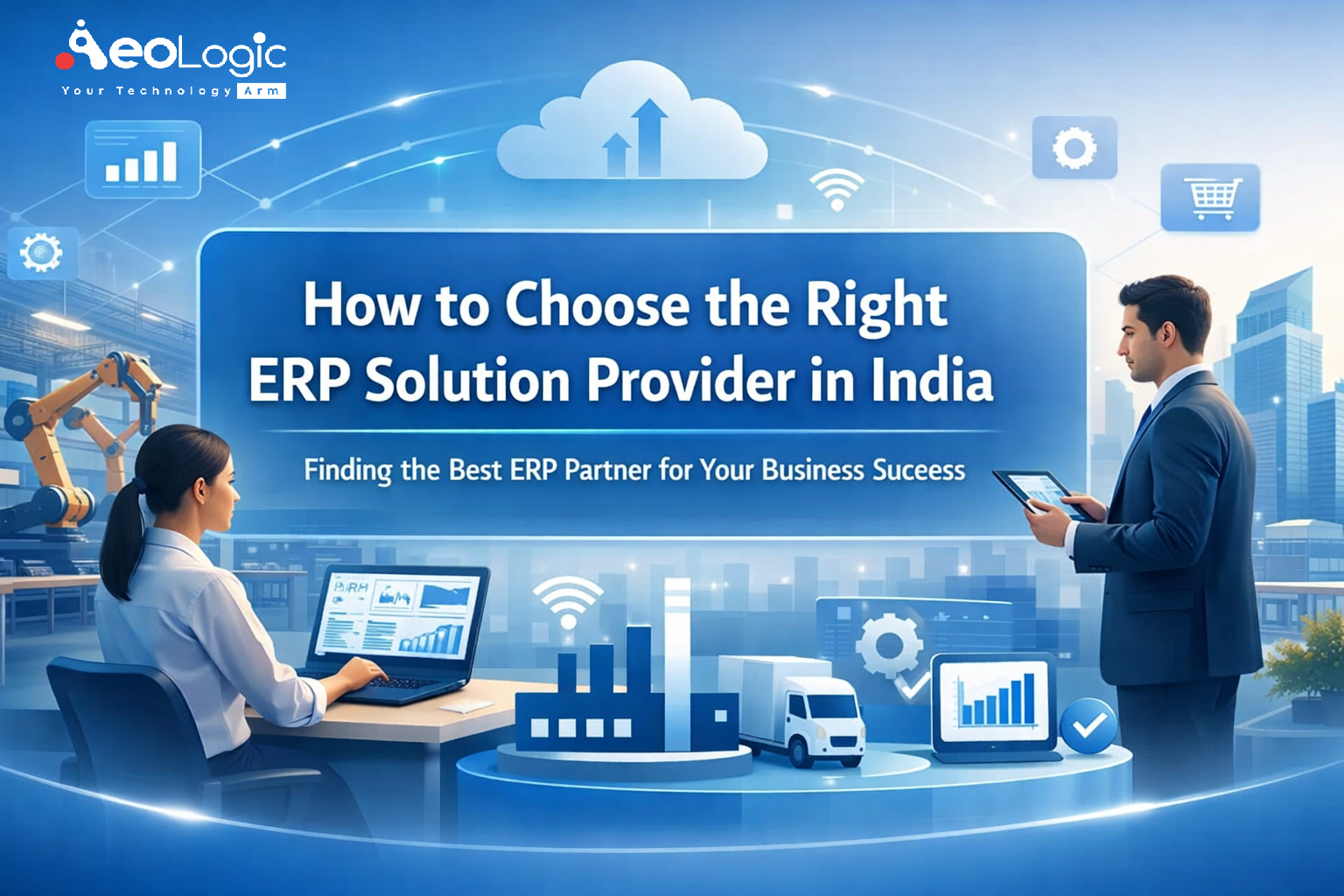Automation has been transforming industries and enterprises for a distant past, as automation reduces labor and automates various tasks. But traditional automation cannot help much in this advanced and fast competition time, as it needs more powerful automation solutions to learn from the situation. Conventional automation worked on a predefined structure that cannot adapt to the problem, which could be a big issue for the future. To enhance automation, businesses have adapted AI-powered automation that is different and powerful from traditional automation. The AI-powered automation learns from the patterns and responds according to the situation, making it more versatile and compatible.
AI automation services could drastically change businesses or enterprises in 2025 by automating repetitive processes, increasing accuracy, and boosting decision-making. This includes using AI for supply chain optimization, data management, and customer support, which will boost productivity and cut expenses. Businesses will also be able to customize customer experiences and make data-driven decisions instantly thanks to AI-driven automation.
AI-powered automation is offering various advantages in terms of productivity, cost reduction, and decision-making. Enterprises and businesses can obtain a competitive advantage and prosper in the changing digital landscape by embracing AI.
Also Read: Why Custom AI Solutions Are the Future of Data Analysis and Reporting
Global Market Analysis
The global industrial automation market size is calculated at USD 256.02 billion in 2025 and is forecasted to reach around USD 569.27 billion by 2034, accelerating at a CAGR of 9.31% from 2025 to 2034. The market size in the Artificial Intelligence market is projected to reach US$244.22bn in 2025. The market size is expected to show an annual growth rate (CAGR 2025-2031) of 26.60%, resulting in a market volume of US$1.01tn by 2031.
Gartner predicts that through 2026, 20% of organizations will use AI to automate management tasks, making it a critical investment for business survival. 63% of organizations plan to adopt AI globally within the next three years.
What Are AI Automation Services for Transforming Enterprises?
AI automation refers to the software solutions that use machine learning and artificial intelligence algorithms to detect patterns in operations and automate them without any human intervention. These services are capable of doing monotonous jobs, deriving insights from data analysis, and even learning and adapting over time. AI frees up human workers to concentrate on strategic work and innovation by automating these jobs.
AI automation offers various applications and benefits for enterprises that justify its presence to transform enterprises in 2025. We will see them later in the upcoming paragraphs.
Also Read: Transforming Businesses with AI Automation Solutions
Top Applications of AI Automation Services for Transforming Enterprises in 2025

There are various top applications of AI automation services for transforming enterprises in 2025. Here are a few mentioned below.
Customer Support and Service
Customer support is a crucial factor in the success of any enterprise, as AI automation is enhancing customer support and services in an advanced manner. There are AI-powered automated chatbots that solve customer queries in minutes. The sentiment analysis system can detect the customer sentiment from the tone and provide them with an answer that is suitable for that condition. This has an impressive effect on customers, which makes them visit again to your enterprise again.
Supply Chain Logistics
Supply chain management and logistics also benefit from AI automation. This enables optimizing inventory, logistics, and procurement by predicting demand and reducing inefficiencies. AI has the potential to analyze data to make demand forecasting that helps enterprises efficiently manage demand and supply.
Marketing and Sales
AI automation can optimize marketing to boost sales for enterprises. The AI automation can analyze the customer behaviour and provide them with personalized marketing campaigns that help to retain the customers. The AI automation can also schedule the ad messaging and timing based on performance trends. This overall results in increased sales for the enterprises.
IT & Security Automation
IT department management and security enhancement are other applications of AI automation. The AI automation system can find the error or risk factor by analyzing the security pattern to avoid any type of cyberattack. The AI automation also enhances the IT aspect of enterprises by resolving issues, resetting passwords, and assisting with technical queries. This results in boosting the trust of customers in the enterprises.
Operations and Business Process Automation
AI automation enables business process automation and enhances efficiency by streamlining workflows, integrating systems, and reducing bottlenecks. With the integration of RPA, the various tasks can be automated with better accuracy without any risk of manual errors. Also, allow businesses to change strategy according to the conditions, and use past data to prevent upcoming interruptions.
Related blog: How AI-Powered Automation is Transforming Business Operations in 2025
Cost of Implementing AI Automation Services In 2025
The cost of implementing AI automation services depends on various factors like the type of AI, project complexity, data size, the need for custom development or integration with existing systems, data volume and quantity, scalability requirements, etc. In 2025, the cost of AI automation services can vary significantly, ranging from a few thousand dollars for basic AI chatbots to millions for complex, enterprise-grade AI systems.
Basic AI Automation (e.g., simple chatbots) can varies from $5,000 – $50,000, machine learning models (e.g., fraud detection, predictive analytics) can costs $20,000 – $200,000, generative AI models (e.g., AI content creation) may costs $50,000 – $500,000, custom AI solutions (e.g., enterprise-grade AI) costs $100,000 – $1 million+, mid-range AI implementations: $150,000 – $500,000 and enterprise-level AI implementations costs $500,000 – $2 million+.
| AI Solution Type | Cost Range (USD) |
|---|---|
| Basic AI Automation (e.g., Chatbots) | $5,000 – $50,000 |
| Machine Learning Models (e.g., Fraud Detection, Predictive Analytics) | $20,000 – $200,000 |
| Generative AI Models (e.g., AI Content Creation) | $50,000 – $500,000 |
| Custom AI Solutions (e.g., Enterprise-Grade AI) | $100,000 – $1 million+ |
| Mid-Range AI Implementations | $150,000 – $500,000 |
| Enterprise-Level AI Implementations | $500,000 – $2 million+ |

Popular AI Automation Solutions for Enterprises in 2025
1. Robotic Process Automation (RPA)
Robotic Process Automation (RPA) uses AI to automate rule-based tasks that are repetitive, manual, and time-consuming. RPA bots mimic human actions like logging into applications, transferring data between systems, and generating reports, which frees up employees to focus on more strategic tasks.
Why It’s Popular in 2025:
RPA continues to be one of the most widely adopted AI solutions due to its ability to reduce operational costs, increase efficiency, and minimize human error. In 2025, businesses across various industries are leveraging RPA to improve customer service, finance operations, and supply chain management, enabling faster, error-free workflows.
Key Benefits:
-
- Increased operational efficiency
-
- Significant cost savings
-
- Enhanced accuracy and reduced errors
-
- Improved employee productivity and morale.
Explore more: Why Robotic Process Automation is the Future of Business
2. AI Chatbots and Virtual Assistants
AI chatbots and virtual assistants are transforming customer service by providing 24/7 support, automating inquiries, and offering personalized responses based on customer data. These solutions can manage everything from simple queries to complex interactions, drastically improving user experience.
Why It’s Popular in 2025:
In 2025, as businesses focus on enhancing customer engagement, AI-powered chatbots are critical for providing timely and accurate support. With advancements in natural language processing (NLP), chatbots are capable of understanding and responding to customer inquiries more effectively than ever before, while learning from interactions to improve their performance over time.
Key Benefits:
-
- 24/7 customer support
-
- Enhanced customer engagement and satisfaction
-
- Reduced customer service costs
-
- Scalability and improved response time.
Also Read: AI Chatbots Solutions for Customer Service Automation
3. Machine Learning Models
Machine learning (ML) enables systems to learn from data, adapt to new information, and make predictions or decisions based on patterns in the data. For enterprises, ML models can optimize supply chains, improve predictive analytics, and streamline decision-making.
Why It’s Popular in 2025:
As data continues to grow exponentially, machine learning models are becoming essential for businesses to analyze large datasets quickly and accurately. In 2025, companies across industries are increasingly relying on ML models for fraud detection, predictive analytics, demand forecasting, and customer behavior analysis.
Key Benefits:
-
- Improved decision-making through data-driven insights
-
- Predictive capabilities for risk management and forecasting
-
- Continuous improvement based on new data
-
- Automation of complex tasks such as fraud detection and customer segmentation
4. Generative AI Solutions
Generative AI solutions refer to algorithms capable of creating content, designs, or new ideas by learning from existing data. This includes applications such as AI-generated content, product designs, and simulations. In 2025, generative AI is widely used for content creation, marketing campaigns, product innovation, and even code generation.
Why It’s Popular in 2025:
Generative AI is gaining traction as it enables businesses to create personalized content, simulate real-world scenarios, and drive innovation at a much faster pace. It allows enterprises to automate creative tasks, reducing the need for manual input while also delivering unique, personalized experiences.
Key Benefits:
-
- Increased creativity and innovation
-
- Faster content and product creation cycles
-
- Personalized customer experiences
-
- Reduced reliance on human creativity for repetitive tasks
Explore more: Benefits and Use Cases of Generative AI for Business Growth
5. AI-Powered Analytics & Predictive Insights
AI-powered analytics solutions leverage AI to analyze large volumes of data, identify trends, and generate predictive insights. These tools enable businesses to forecast future outcomes, track performance, and optimize operations based on data-driven predictions.
Why It’s Popular in 2025:
As data-driven decision-making continues to dominate, AI-powered analytics are crucial for businesses to gain a competitive edge. By using AI to identify actionable insights, enterprises can respond proactively to market changes, customer needs, and emerging risks. In 2025, businesses are adopting predictive analytics to drive smarter decisions and improve operational performance.
Key Benefits:
-
- Enhanced forecasting and risk mitigation
-
- Data-driven decision-making for improved performance
-
- Real-time insights into business operations
-
- Increased ability to predict customer behavior and market trends
Also Read: How AI and Automation are Elevating Hotel Management and Operations
Final Words
Among all trends, the emergence of agentic AI, ecosystem automation, human-centric AI, and AI-augmented orchestration are some of the upcoming trends in AI automation. Through better decision-making, more efficient operations, and improved customer experiences, these innovation trends have the potential to completely transform how enterprises run.
The future of AI automation is filled with various possibilities and opportunities that directly or indirectly benefit enterprises. In conclusion, the AI automation services are the solutions to this crowded and tough competition to make your empire rule the market. So, try to implement AI automation to enhance your operations more than ever before.
AI automation is transforming how businesses operate. From faster workflows with RPA to smarter decisions with AI analytics, these solutions are shaping the future. Businesses that embrace these tools will stay ahead in 2025 and beyond.
Ready to take your business to the next level with AI automation? Contact Aeologic Technologies today and let us help you unlock the full potential of AI for your organization!
FAQs
How long does it take to implement AI automation in a business?
The implementation timeline for AI automation can vary based on the complexity and scale of the project. For simpler solutions like chatbots or task automation, it may take a few weeks to a couple of months. For more complex, enterprise-grade AI solutions, the process can take several months or even up to a year, depending on integration, customization, and testing requirements.
What industries can benefit the most from AI automation?
AI automation can benefit a wide range of industries, including finance, healthcare, retail, manufacturing, logistics, and customer service. Whether it’s automating customer support, improving supply chain management, or enhancing predictive analytics, AI solutions can streamline operations and drive growth in almost any sector.
Is AI automation scalable for growing businesses?
Yes, AI automation is highly scalable. As your business grows, AI systems can be adjusted and expanded to handle increased demand, more complex processes, and larger volumes of data. Many AI solutions are designed to scale seamlessly, ensuring that they can continue to meet your needs as your operations expand.
What kind of data is required for AI automation to be effective?
AI automation systems require access to high-quality data to function effectively. This data can include historical transaction data, customer behavior patterns, operational metrics, and real-time inputs. The more accurate and comprehensive the data, the better the AI system will be at providing insights, predictions, and automation that drive value for your business.
Can AI automation integrate with existing business systems?
Yes, AI automation can be integrated with existing business systems such as CRM, ERP, HR, and accounting platforms. AI solutions are designed to work with your current software infrastructure, enabling seamless data exchange and enhancing the performance of your existing tools. Integration can be customized based on your specific needs and systems in place.

I’m Deepika Pandey, an SEO strategist and content writer with 6+ years of experience. I create SEO-friendly content that drives traffic and engages readers. I combine data insights with creativity to help businesses grow their online presence effectively.






